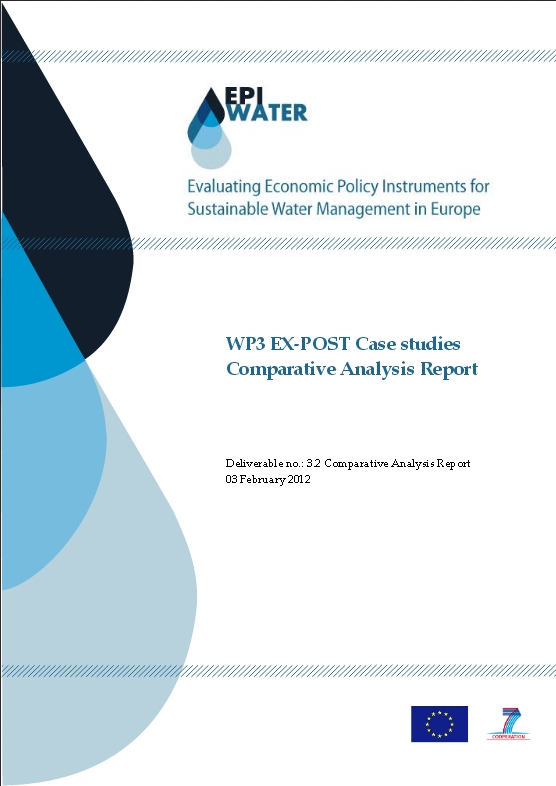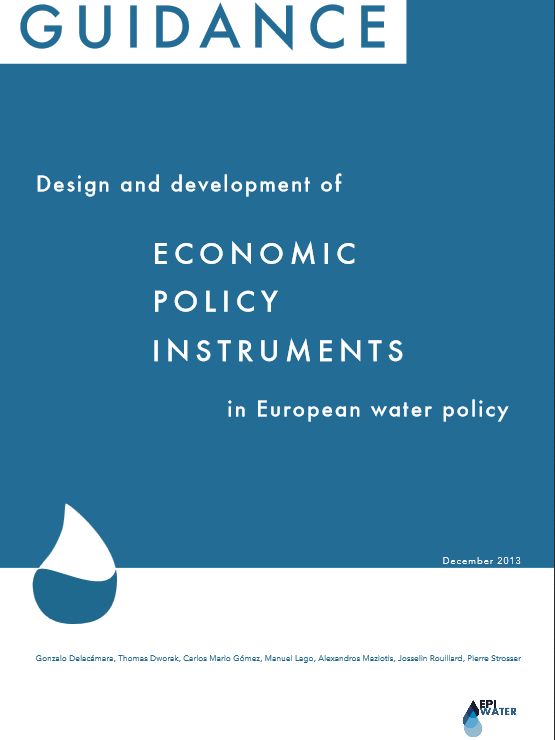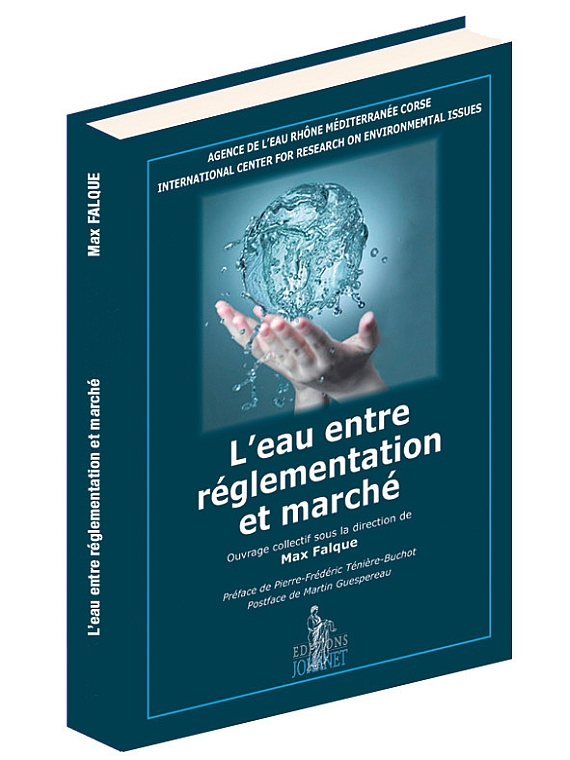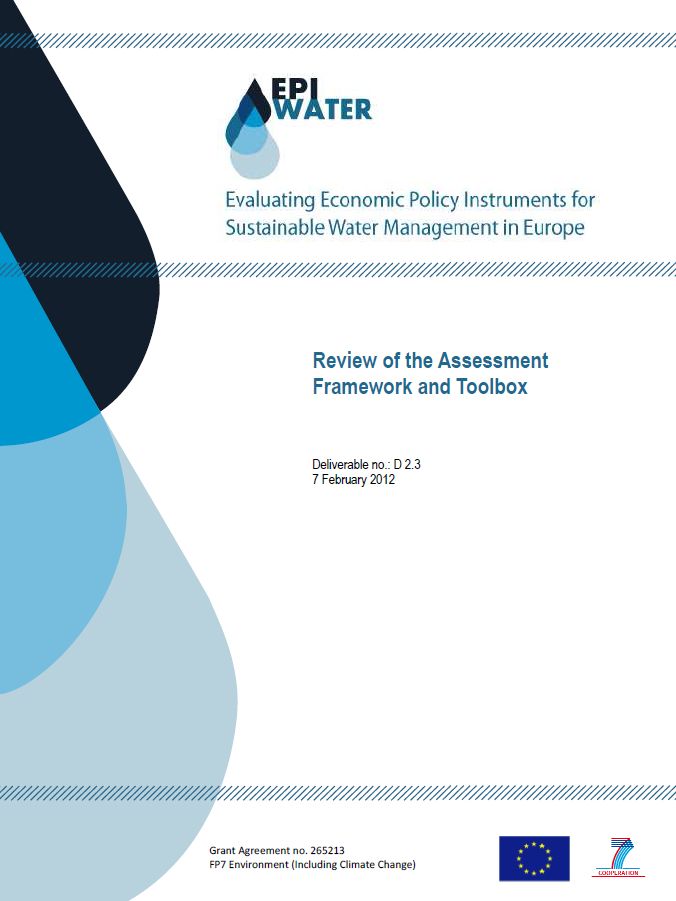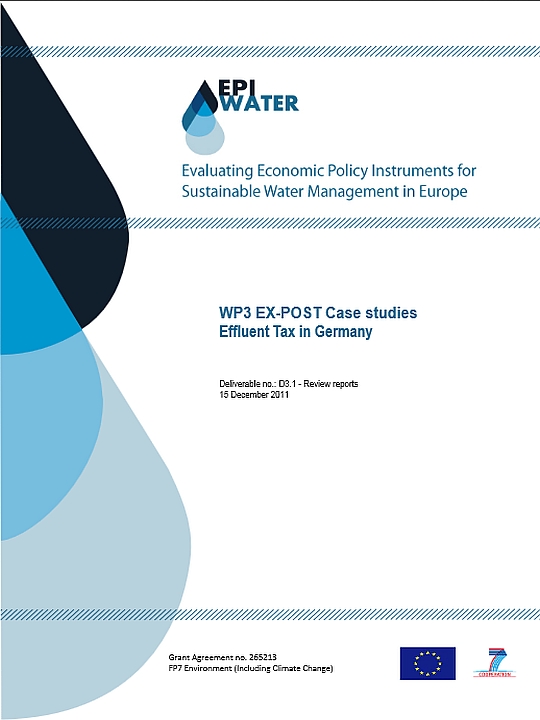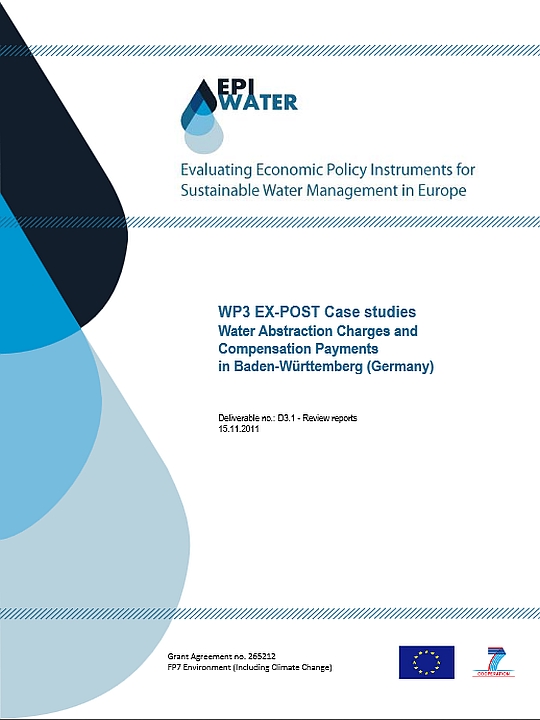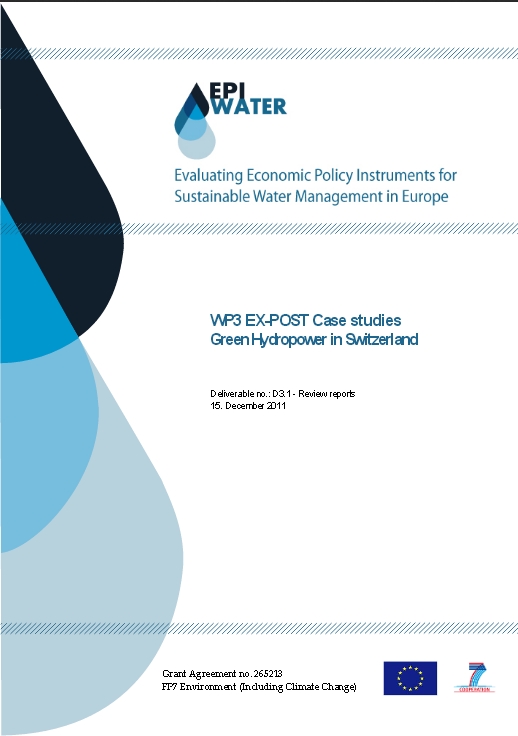Comparative Analysis Report
- Publication
- Citation
Manuel Lago and Jennifer Möller-Gulland 2012: Comparative Analysis Report. Ecologic Institute.
The EPI-Water project applies an evidence-based approach to the assessment of Economic Policy Instruments (EPIs) for water management. In this report, the 30 ex-post case study reviews undertaken in the work package 3 of the project are synthesized and cross-compared to extract a first set of common features and formulate hypotheses about the conditions under which EPIs contribute to policy options to achieve sustainable water management.
This comparative analysis report draws conclusions built on the ex-post assessment of case studies from Cyprus, Denmark, France, Germany, Hungary, Italy, the Netherlands, Spain, Switzerland, and the United Kingdom, as well as outside of Europe, from Australia, Chile, China, Israel, and the USA. A wide range of types of EPIs has been covered: water pricing schemes (tariffs, environmental taxes, environmental charges or fees, subsidies on products and practices), trading schemes (tradable permits for abstraction and pollution), cooperation mechanisms and liability instruments.
The synthesis also benefits from the fertile discussions held between EPI-Water consortium partners and other attendees of the First FP7 EPI-Water Conference "Understanding the Application of Economic Policy Instruments in Water Management".
The aim of this synthesis is to lay down a benchmark for other deliverables of the project, which will build upon the assessment developed within the third phase of the project (Work Package 3, ex-post) and the fourth phase of the project (Work Package 4, ex-ante). In the process, some key messages to assist the development of current water policy streams have been identified. As a summary of the main conclusions, evidence suggests that EPIs are suitable tools to cope with existing water policy challenges, in particular regarding:
- Coping with water scarcity and to improve resilience to extreme events and climate change by:
- Improving water allocation among competing uses (through: water trading for example)
- Promoting higher efficiency in the production and the use of water services (through: water pricing, subsidies, fines, etc.)
- Fostering coordinated and planned responses to water risks instead of the competitive spontaneous responses traditionally leading to higher risks and water uncertainties (through: Cooperative agreements, income stabilization insurance, water preservation funds, etc.)
- Finding cooperative agreements to share the benefits of preserving water resources (through: PES schemes, self-enforceable agreements among users, etc.)
- Reversing increasing trends in the degradation of water bodies by:
- Reducing and controlling point-source pollution (through: water pollution pricing to make feasible the implementation of water quality standards and as a tool to abate water effluents and increase water treatment technical efficiency)
- Controlling diffuse pollution (through: properly designed incentives to adapt farming practices and land use in order to preserve critical water ecosystems and to put providers and beneficiaries in a common, cooperative agreement)
- Reverse degradation trends of critical water ecosystems by:
- Providing incentives in favour of the voluntary delivery of environmental flows and for river restoration actions from hydropower (through: voluntary cooperation)
- Promoting the empowerment of firms and stakeholders to preserve the environment (corporate social responsibility rules, preservation funds, etc.)
The findings from this exercise were presented in the Special Session on Managing Water for Green Growth: Economic Incentives and Financing, organized by the OECD as part of the 6th World Water Forum (Marseille, April 13th, 2012).
The report [pdf, 1.2 MB, English] can be downloaded here.
